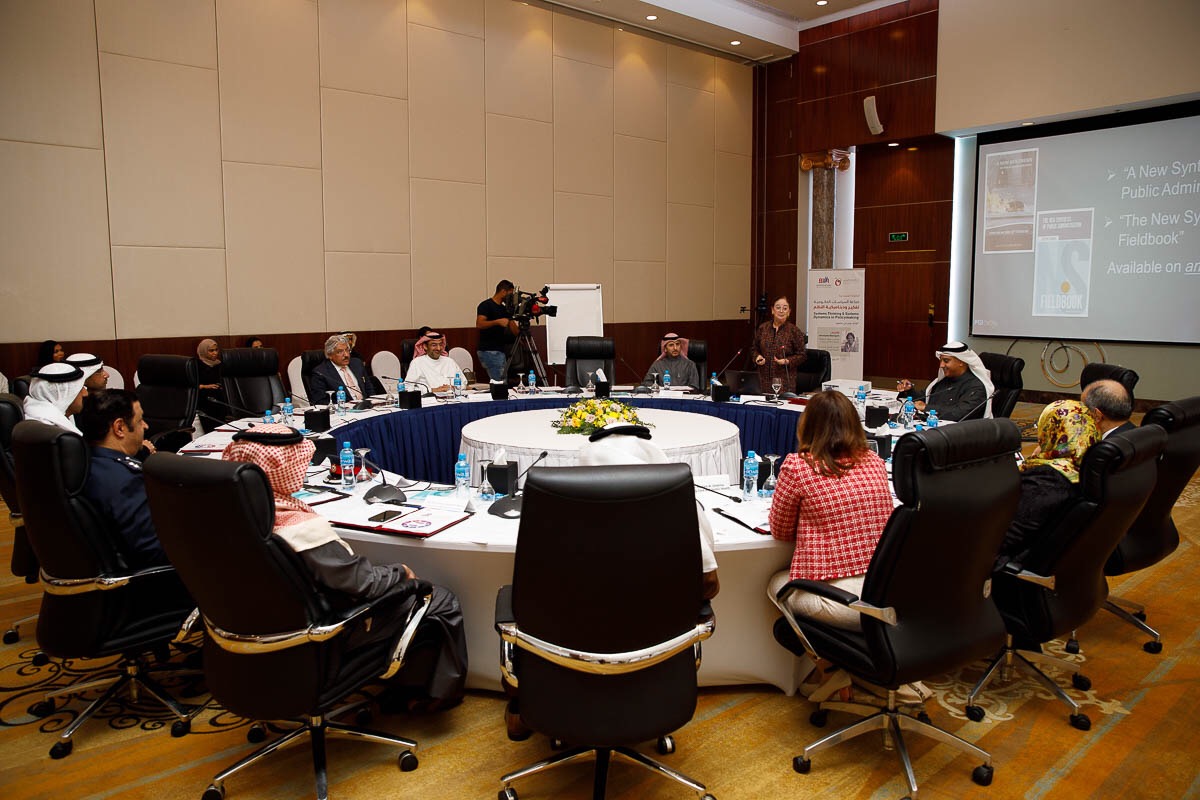

His Excellency Dr. Raed Mohammed Bin Shams, the Director-General of Bahrain’s Institute of Public Administration (BIPA), has stated that a roundtable meeting of more than 15 undersecretaries in the Kingdom of Bahrain to discuss the reasons and factors influencing and affecting the dynamics of the governmental work is an indication of a unified strategy looked forward by civil servants of Bahrain at various functional responsibilities and a work that aims at realizing aspirations of citizens through the creation of innovative solutions for various challenges encountered.
Dr. Bin Shams emphasizes during the undersecretaries’ roundtable activity titled “Government Policy Making: Thinking and Dynamics of Systems”, that this objective stems from the all-inclusive vision of His Majesty King Hamad bin Isa Al-Khalifa, the King of the Kingdom of Bahrain, which vision aims at unifying efforts to achieve satisfaction of the citizens. “A citizen is an effective participant in achieving operative results for the community, apart from being the first beneficiary of all government services, and the one who is influenced by all policies made by the decision makers at various authorities of the public sector. Government business today is not only an achievement of performance indicators, it is also to ensure satisfaction beyond expectations”, Dr. Bin Shams explained.
Dr. Bin Shams pointed out that the roundtable activity coves also many topics commensurate with the government business in the Kingdom of Bahrain. It also reviews a number of innovative methodologies to bring about participative solutions based upon evidence and proofs, in addition to presenting existing models and practices and comparing them to global challenges introduced by the international expert, Professor Jocelyne Bourgeon, who is specialized in developing government policies based upon system dynamics. She is also the founder of Public Governance Institute (PGI) of Canada.
The roundtable activity also aims at highlighting the mechanism of the common course of action in the governmental business system to participate in providing quality and effective services and to come up with recommendations for the unification of strategic efforts of various governmental initiatives in order to achieve the aspirations of the nation and citizens towards sustainable development.
